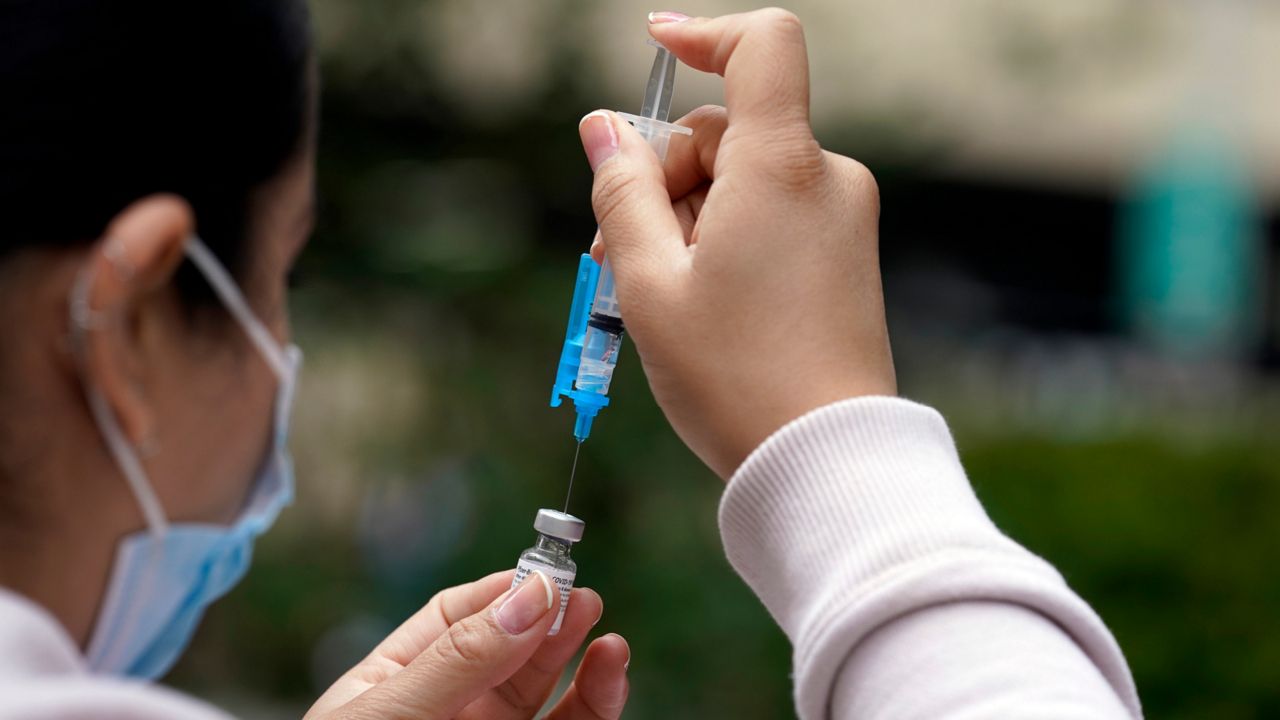TAMPA, Fla. — With the Delta variant fueling a rise in COVID-19 cases nationwide, Pfizer and BioNTech are developing a booster shot specifically meant to target the strain.
What You Need To Know
- Pfizer is developing a COVID-19 Delta booster shot
- Clinical trials could begin next month
- USF virologist says current vaccines work well against Delta
- Moderna is also working on variant booster vaccine candidate
"While Pfizer and BioNTech believe a third dose of BNT162b2 has the potential to preserve the highest levels of protective efficacy against all currently known variants including Delta, the companies are remaining vigilant and are developing an updated version of the Pfizer-BioNTech COVID-19 vaccine that targets the full spike protein of the Delta variant," read a July 8 news release from the companies. BNT162b2 is Pfizer's current vaccine.
A benefit of mRNA vaccines is that they can be adjusted to target different mutations of the virus more quickly than vaccines for other illnesses, such as the flu. University of South Florida associate professor of medicine Dr. Michael Teng said it involves sequencing the strain you want to attack, then changing the sequence of the mRNA.
"Then, you can manufacture it, so it's fairly easy," said Teng. "The harder part is actually proving that that vaccine still does what you expect it to do."
According to Pfizer and BioNTech, clinical trials on the Delta booster could get underway next month, pending regulatory approvals.
The companies say the first batch of mRNA for the study has already been manufactured. There was no estimate for when the booster could be submitted for emergency approval, but Teng said the current vaccines seem to work well against the variant.
The July release said lab tests showed Pfizer's current formula produced strong neutralization against Delta after the standard two doses. The maker of the other mRNA vaccine, Moderna, is also working on a variant booster candidate. Last month, the company announced a study found its current vaccine showed a "modest reduction" in efficacy against Delta.
"I don't necessarily see that we need a Delta-specific vaccine," said Teng. "I think the bigger question is whether we'll need a third dose of the mRNA vaccines or maybe a second dose of the Johnson & Johnson vaccine."
Teng said based on what's been learned from clinical trials and real world evidence, he thinks a booster dose will only be necessary for people with compromised immune systems. To those who haven't yet been vaccinated, he said now is the time.
"You'll have two to three weeks until you get full immunity, it's going to take some time," said Teng. "So, in the meantime, you need to protect yourself. Do the risk reduction — wear a mask, physically distance, things like that, because this Delta variant is pretty transmissible. It's the most transmissible form of SARS-CoV-2 that we've seen so far."



